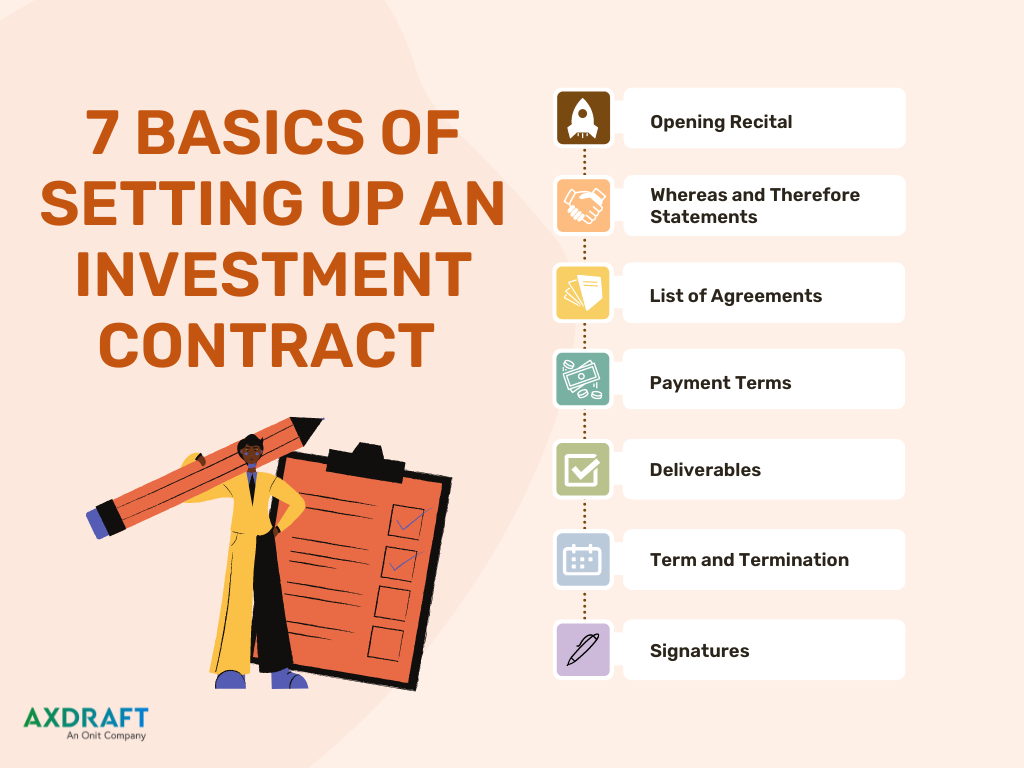Looking for investors is one of the best ways to grow a business. This is an opportunity to raise the necessary financial capital, which will sustain the operations of an organization. When doing so, however, the company needs to take care of various aspects, including the legal side.
Among others, one of the most important requirements is an investment contract. It is a legally binding agreement between the investor and the company. Understanding the fundamentals of a legal contract is crucial to ensure its comprehensiveness.
Read on and learn more about investment contracts, including how you can set up one.
What is an Investment Contract?
Throughout their operations, businesses will deal with different types of contracts. From employees to suppliers, companies must execute legal documents that are vital for their functions. In this post, however, our focus is on one that concerns potential investors.
In a nutshell, an investment contract is a legal agreement between two parties. One of the parties is the business owner and the other is an investor expecting a return. It is regulated by The Securities Act of 1933.
Let’s say, for instance, a big company like Airbnb is looking for investors. To clearly stipulate the terms and conditions of a potential partnership, they need to create an investment contract. It will outline the fundamentals of the deal, such as the amount of Airbnb stocks the investor will receive or the warranties given by the company. It also includes the amount to be invested.
Important Elements of an Investment Contract
A valid investment contract requires the presence of certain elements, including the following:
The investment in this case does not necessarily have to be a currency or cash. It could be any way of providing value to an organization with the anticipation of having a beneficial interest in a business.
It refers to concerted business activity, although it does not necessarily refer to the registered business entity.
When an individual invests in a business, there is an expectation of direct or indirect profit. It can include taking advantage of tax benefits associated with the investment.
The last element notes that the investor relies on the efforts of others. It means that the investor is not active in the business.
Different Types of Investment Contracts
Before we discuss the elements of a contract that should be present in an investment agreement, here is a quick look at some of the most common types available.
- Stock Purchase Agreement: One of the simplest investment contracts, it involves the buyer acquiring a certain share percentage of a company’s capital stock. After this, the buyer becomes a company’s shareholder.
- Stock Option Agreement: It can be either statutory or non-statutory. It provides the investor the choice to purchase stocks in the future based on a pre-determined price. Speaking of stocks, take note that their prices can fluctuate over time. Be armed with the right knowledge and know why stocks are volatile.
- Convertible Debt Agreement: When signed, it means that the investor allows the business to borrow money but there is an option to convert this loan into ownership.
- Restricted Stock Agreement: In this type of investor agreement, the business issues shares to an investor in exchange for contributing time and effort to the company over time.
- Royalties, Commissions, and Percentage of Revenues: This is for investors who do not want to have a share of the company’s ownership but want to claim a portion of the profit.
The Basics of Setting Up an Investment Contract
So, how exactly do you set up an investment contract? Here is a quick guide on some of the essentials.

Opening Recital
The first thing that you should include in an investment contract is the opening recital, which shall state the date of the agreement, as well as the names of the parties entering a contract. Include the addresses as well.
Whereas and Therefore Statements
The next part of the contract is the “whereas” statement, indicating that one party is seeking investment and that the other party is willing to make the investment. It is followed by a “therefore” statement, which says that the parties agree on the terms that are stipulated next.
List of Agreements
This is one of the most important parts of the contract. It must stipulate the articles previously agreed upon by both parties based on the initial negotiation. Use Article 1, Article 2, and so on to list the agreements one at a time. Some of the things that you can list include the specific amount of money that will be invested, how the money will be used, the expected return on investment, and the conditions of the investment.
Payment Terms
Another important stipulation in the contract is the mode of payment. It can be given as a one-time payment or in installments. If it will be given in installments, an attachment is often provided as well, which will provide a detailed schedule of the payments.
Deliverables
The investment contract can also specify any deliverable expected from both parties. For instance, it can state a specific timeline when a certain condition must be fulfilled by the investor or the company.
Term and Termination
The term of the contract states the time at which it remains valid. On the other hand, termination refers to some of the conditions that will forfeit the contract.
Signatures
The investor and the company must affix their signature on the contract to make it legally binding. Such should be done by authorized individuals. Witnesses must also sign the agreement. Sign two copies, so each party can have an original copy.
Conclusion
An investment contract is a must-have legal document between an investor and a business wishing to forge a partnership. Setting it up requires preparing a document signed by both properties identifying those who are involved, the specific conditions and agreements, as well as the conditions for termination.